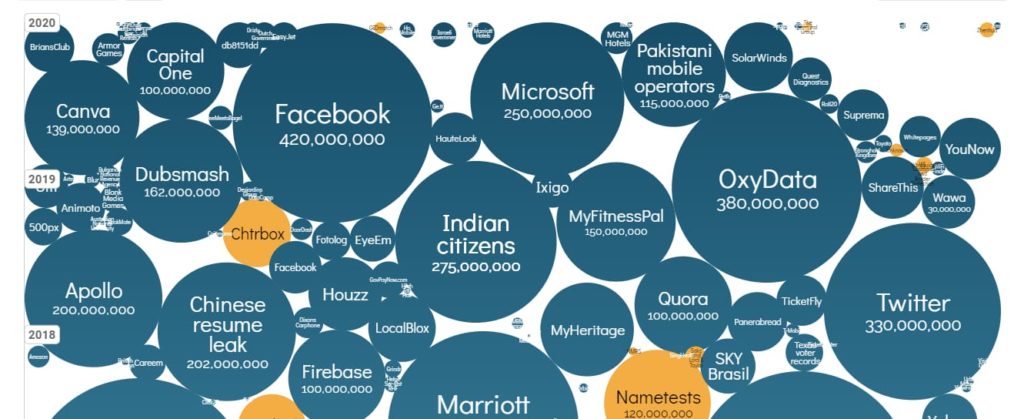Safety, security, and privacy are the key concerns of internet users. If you are using Quora and publishing content there, you must be aware of its safety, your account safety, and the safety of the content you have published over the years on the platform.
Imagine you wake up one fine morning and realize that your Quora account is hacked or Quora has decided to shut down. What will you do with all the content, followers, and authority?
Isn’t it scary for those who have thousands of Quora followers who drive heaps of referral traffic to their websites on a daily basis?
Sure, it is.
Back in 2018, Quora posted a security update on its blog saying that hackers stole over 100 million user data. Account information (including account passwords) and both public and non-public content of these 100 million users were compromised. Quora informed users and asked them to change their passwords for security.
A similar data breach can ruin your marketing strategy in no time.
Is Quora Safe?
Safety can take any form and when you are using Quora, you have to ensure different types of security and safety.
Content Safety
At the basic level, yes Quora is safe. It doesn’t use or share your personal information with third-parties. The content you post (in the form of answers) is safe. Yes, people can repurpose your answer but they can’t do it without citation.
You own the content and you’ll always get credit for your content that’s on Quora. Here is what Quora says about your content:
“You own the content that you post; you also grant us and other users of the Quora platform certain rights and license to use it…”
Here is what the license says:
“By submitting, posting, or displaying Your Content on the Quora Platform, you grant Quora and its affiliated companies a nonexclusive, worldwide, royalty free, fully paid up, transferable, sublicensable (through multiple tiers), license to use, copy, reproduce, process, adapt, modify, create derivative works from, publish, transmit, store, display and distribute, translate, communicate and make available to the public…”
Quora gives a worldwide royalty-free license to use its content provided the users do not modify content and attribute Quora with a link.
This makes your content safe forever. Nobody can steal it and if someone does so, Quora will handle it. In this sense, Quora is safe as your content is yours as long as it is published on the platform.
Data and Information Safety
In terms of data privacy, Quora explicitly states that it does its best to protect your information but no website or internet transmission is secure:
It asks its users to take precautionary measures to safeguard and protect their accounts and personal information. This is a red flag.
Apparently, nothing on the internet is safe.
It isn’t just about Quora but all companies big and small get hacked. Think of Google, Windows, Yahoo, Adobe, eBay, LinkedIn, Intel, Cisco, Zynga, etc. have all been hacked on different occasions. Here is a record of 30K biggest data breaches and hacks of all times:

If a lot of websites are getting hacked, it doesn’t imply the internet isn’t safe and it is a norm. There are millions of companies that never had a single data breach. A data breach is an indication of a loophole that hackers exploited and Quora is among the list – unfortunately.
What this means is that Quora had a loophole in its security. Nobody knows if it has been fixed completely or if there are other loopholes that hackers can find at some point in time. We don’t know.
But Quora has clearly transferred the burden of safety and information protection on its users by explicitly mentioning it in its privacy policy. In an event of another data breach, it is all up to you to safeguard your personal information.
Backup
Another serious safety concern, especially for people who publish a lot of content over at Quora, is related to the content you post. Quora has blocked the Wayback Machine from indexing it in its robots.txt file. This is what you see if you search quora.com on the Wayback Machine:
The URL is excluded and Quora says that it has done so to protect its writers who post sensitive answers anonymously. It is a great idea to protect anonymous writers and sensitive content but not having content indexed in the web archive means there is no backup.
If Quora decides to block or terminate your account, you’ll not have access to your content and answers anymore. Similarly, if Quora shuts down or is hacked, there is no way you’ll be able to get access to your content.
As a platform that runs on user-generated content, not having an index in Wayback Machine means Quora isn’t dealing with content created by millions of people smartly. It is a bigger safety concern than the other two.
How to Be Safe on Quora
As a content publisher on Quora, your first priority must be to safeguard your account and information. This can only be done by using a strong password and changing it once a month. Quora doesn’t have two-factor authentication so it is all up to you.
Second and importantly, you must backup your content. The content you have posted on Quora as answers is yours and you need to make sure you are repurposing it – and have it all backed up. In case Quora shuts down, gets hacked, or terminates your account, you’ll be able to reuse your content on any other platform.
The best approach is to republish your Quora answers on your blog and other social media accounts. No, you don’t have to link to your answer, rather you have to copy-paste the complete answer to any other platform of your choice (with a link to Quora, of course).
Conclusion
Quora is safe. It is a huge company and knows well the ins and outs of data security and data breaches. After a data breach, it has improved its security significantly.
But your content is way more important than your Quora account.
I’m sure you know the importance of content and how hard content creation is. According to HubSpot, businesses spend as much as 46% of their budget on content creation alone. Don’t give your content’s authority to another platform especially when you know it has no solid backup and safety plan.
You don’t have to change your Quora marketing strategy. Keep doing whatever you are doing on Quora, just republish your answers somewhere else too.
It will make you and your content safe forever.
Featured Image: Pexels






